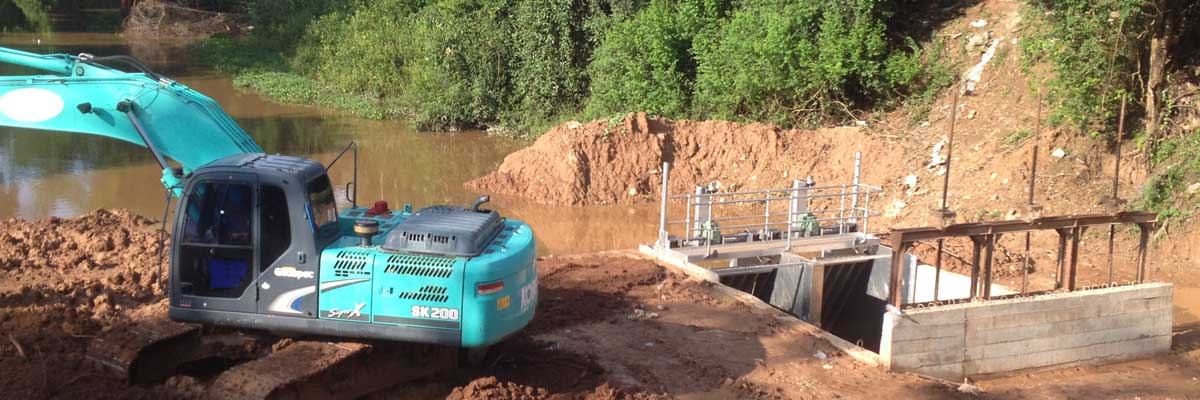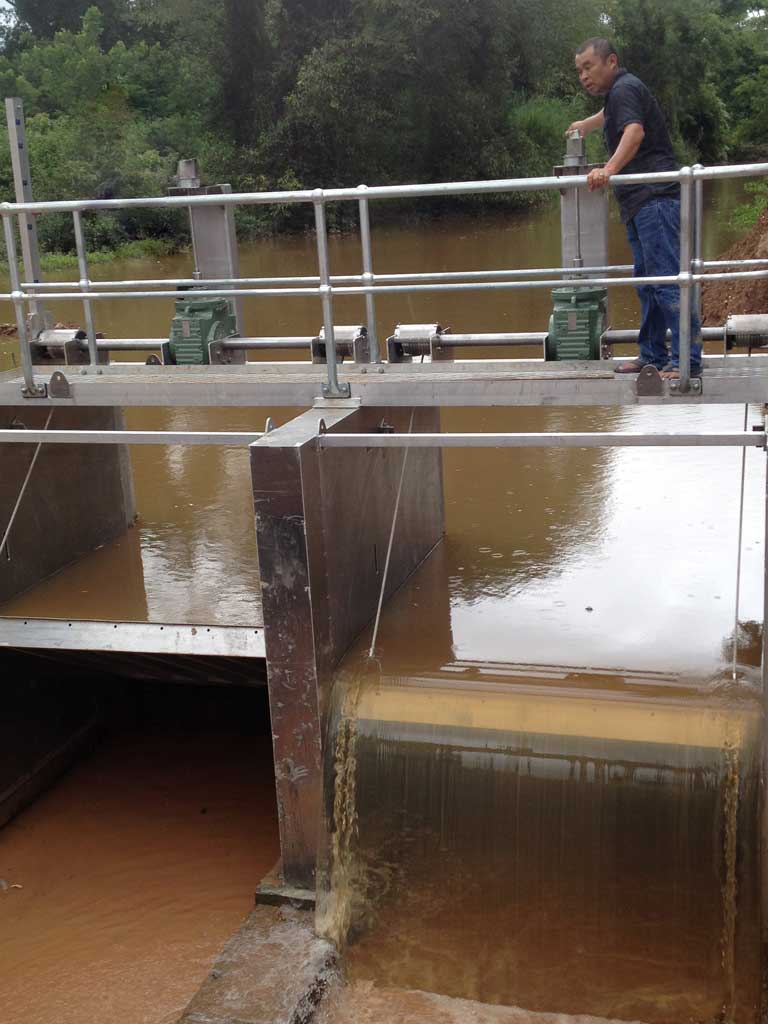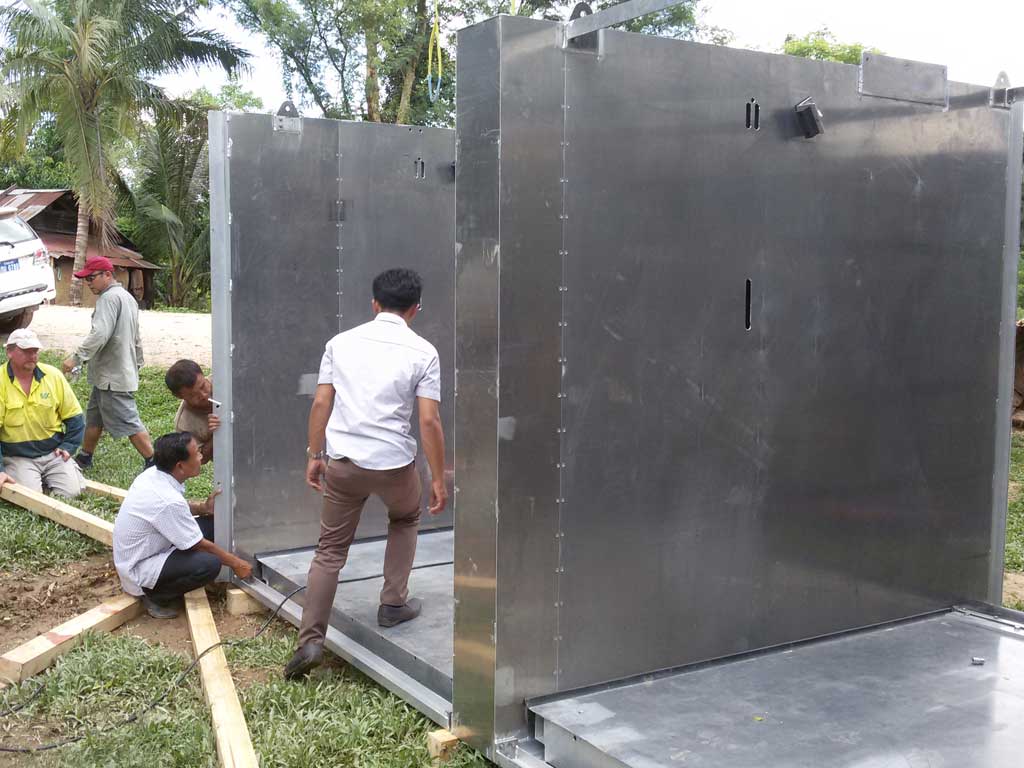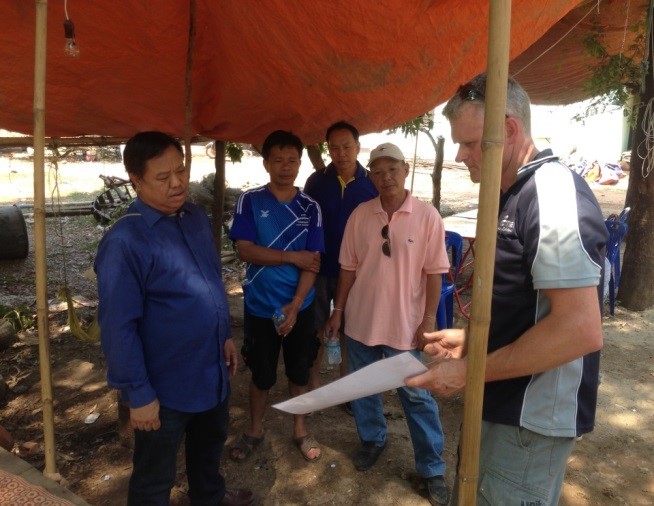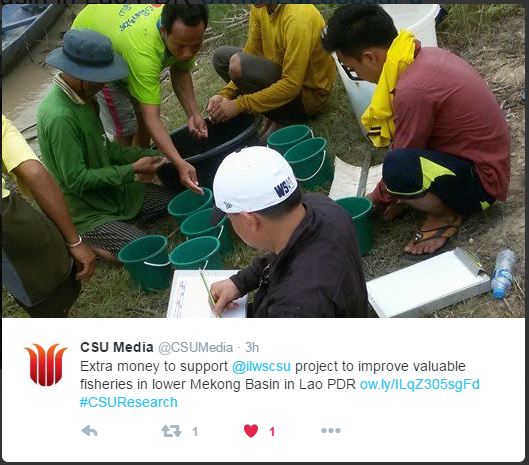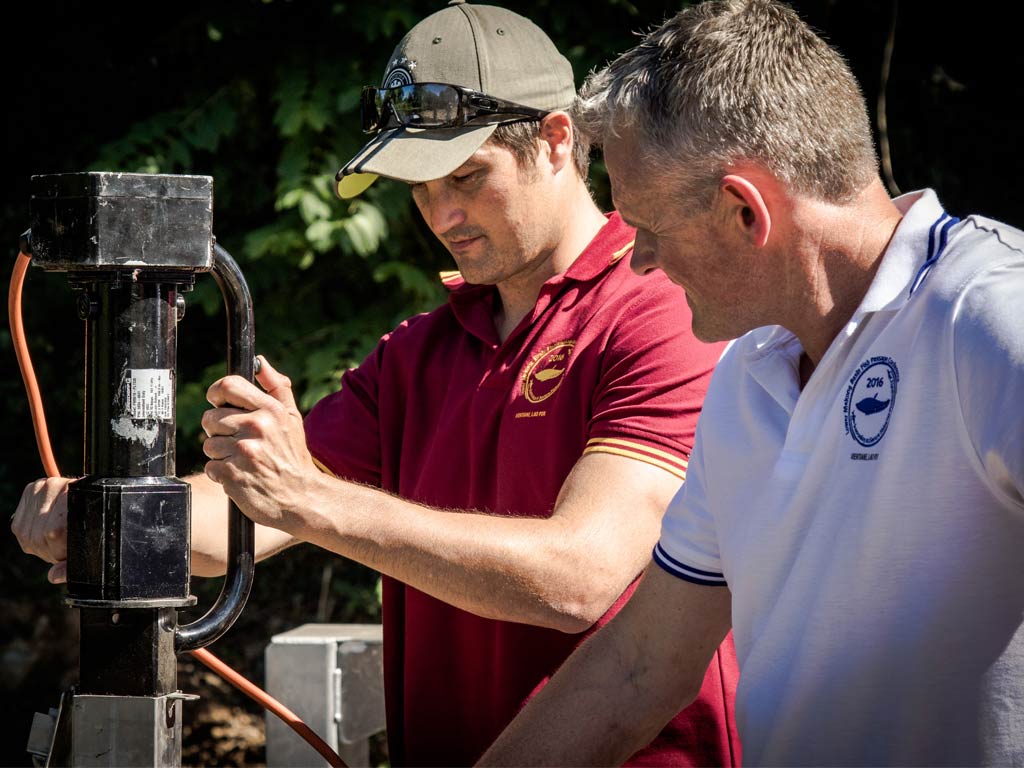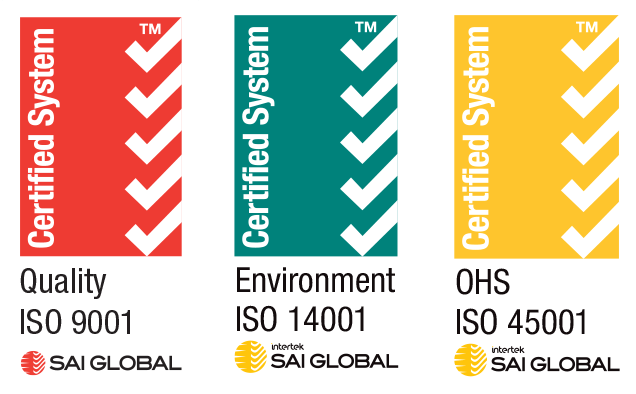LAYFLAT TO IMPROVE FISHERIES AND LIVELIHOODS IN LAOS
AWMA liaise with many international organisations regarding the development of innovative water control solutions that are feasible, efficient and promote environmental sustainability.
The multibay LayFlat gate pictured above, was recently exported to Lao PDR as part of an investigative study in partnership with Fisheries NSW, funded by Australian Centre for International Agricultural Research (ACIAR).
The LayFlat is part of a five year project conducted by the National University of Laos and the Living Aquatic Resources Research Centre, to improve fish migration in and out of wetland breeding grounds, off Laos’ Mekong River.
Fish are essential to sustain the diet and industry of those living along the Mekong. AWMA’s ‘fish friendly’ LayFlat gates will replace traditional undershot regulators which have been compromising fish populations for many decades. Ensuring irrigation structures provide safe fish passage is essential for sustainable fish populations.
The new LayFlat gates will operate alongside a recently constructed wetland fishway at Pak Peung, ensuring an integrated approach which enables fish to safely enter and exit the wetland. The Pak Peung fish passage project will be showcased at an international fish passage conference to be held in Laos late 2016. It is anticipated the trial will lead to a more comprehensive program along the length of the Mekong.
Project Update (September 2016):
EXPERT EFFORTS, PATIENCE AND PROFESSIONALISM" - Dr Craig Boys, New South Wales Department of Primary Industries.
AWMA have been praised for successfully installing the MultiBay LayFlat Gate in Laos. Pak Peung now has a safe and effective, upstream and downstream fish passage. AWMA found it very gratifying to work on such an important international project and are thrilled it has been so well received.
We trust that ACIAR can use the project information and findings to assist many others during the regional fish passage conference later in 2016.
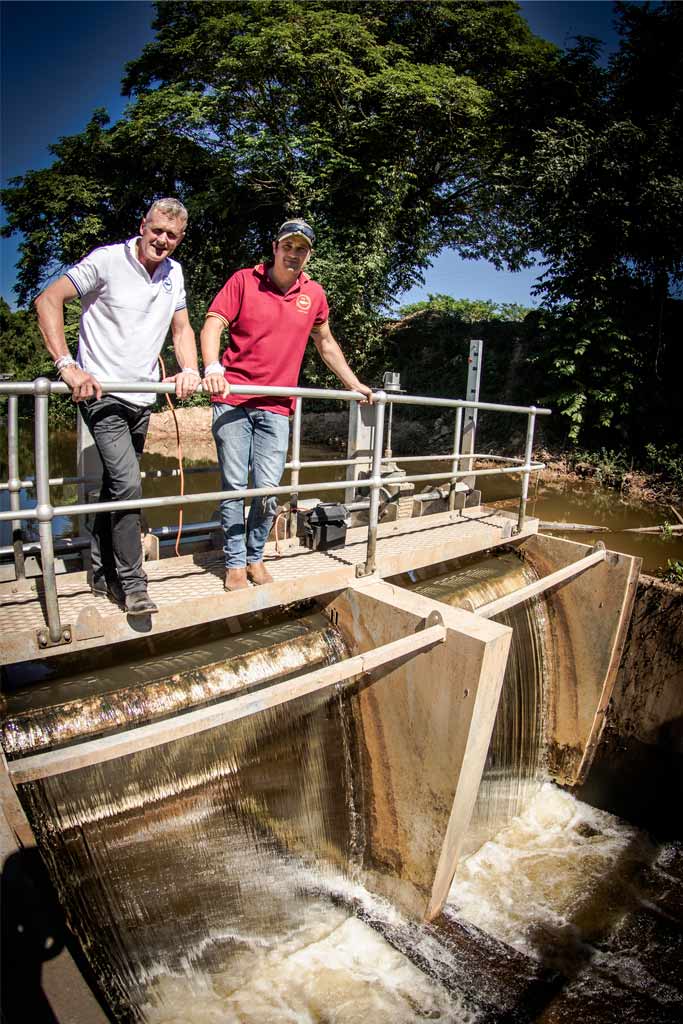
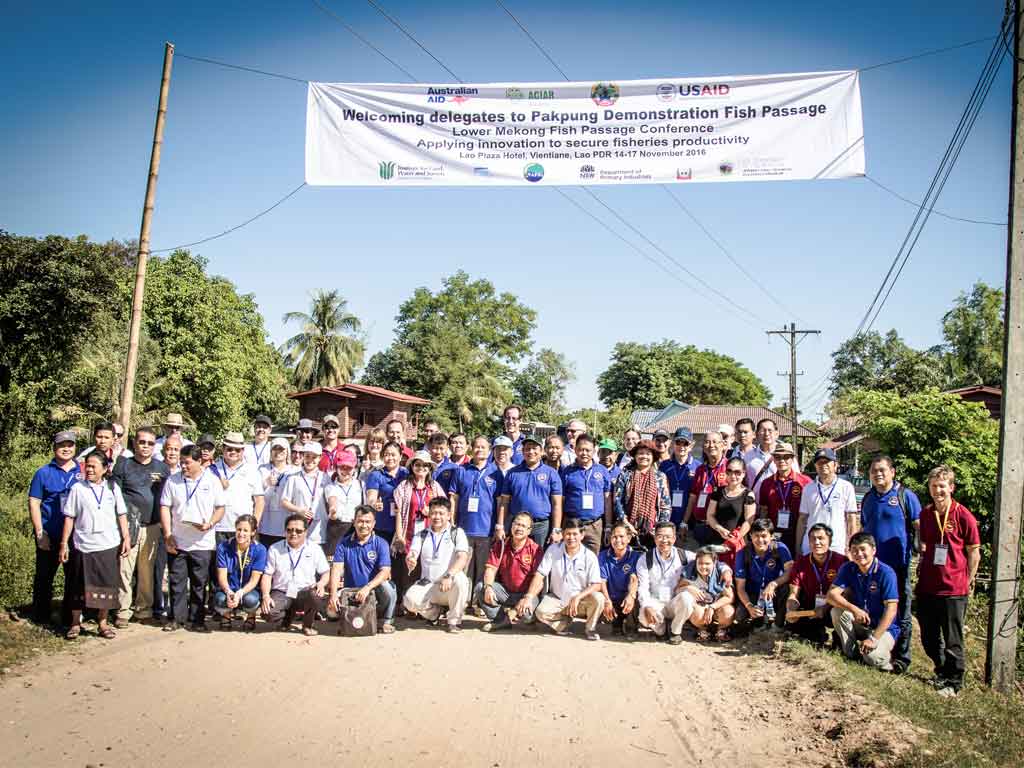
For more information
Project Partners:
Fisheries NSW
Australian Centre for International Agricultural Research (ACIAR)

